2023 National Outstanding University Student Summer Camp Successfully Hosted by Beijing Language University's Discipline Innovation and Intelligence Introduction Base for Language Cognitive Science**
On July 7-8, 2023, Beijing Language University's Discipline Innovation and Intelligence Introduction Base for Language Cognitive Science organized the successful 2023 National Outstanding University Student Summer Camp for students majoring in language cognitive science. More than 30 outstanding students from over 20 universities across the nation participated in this event. The summer camp featured a combination of online and offline activities, meticulously designed to provide campers with comprehensive insights into the Discipline Innovation and Intelligence Introduction Base for Language Cognitive Science and the field of "Language Cognitive Science." It also served as a platform for campers to engage in meaningful exchanges with renowned experts and young mentors from the base.
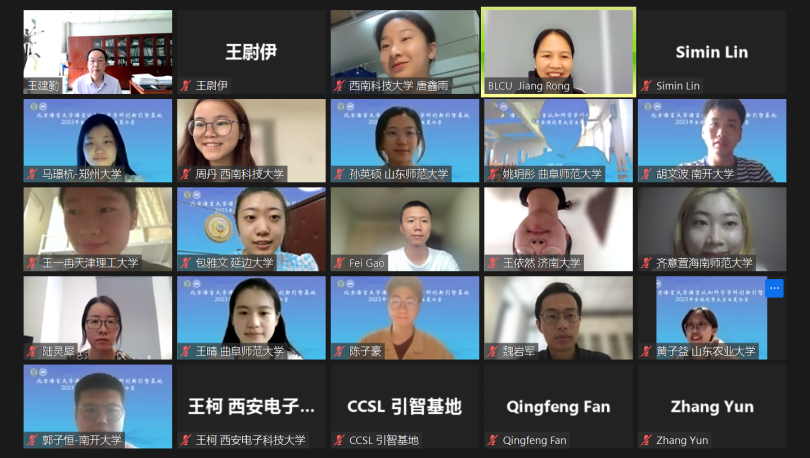
The opening ceremony of the summer camp took place online on the morning of July 7. Professor Wang Jianqin, Director of the Discipline Innovation and Intelligence Introduction Base for Language Cognitive Science, delivered the opening speech, while Professor Jiang Rong, Deputy Director of the base, presided over the ceremony. Deputy Director Jiang extended a warm welcome to all campers on behalf of the base and provided a brief introduction to the base's background and the key activities of the summer camp. Professor Wang Jianqin then elaborated on the base's academic specialties, program development, scientific research, international and domestic expert teams, laboratory facilities, and offered insights into the future of language cognitive science research. He expressed great anticipation for the outstanding campers from various regions to actively engage in language cognitive science research at the base. The opening ceremony featured a promotional video showcasing the base's historical evolution, domestic and international researchers, academic achievements, laboratory equipment, international academic exchange activities, and research conference highlights.
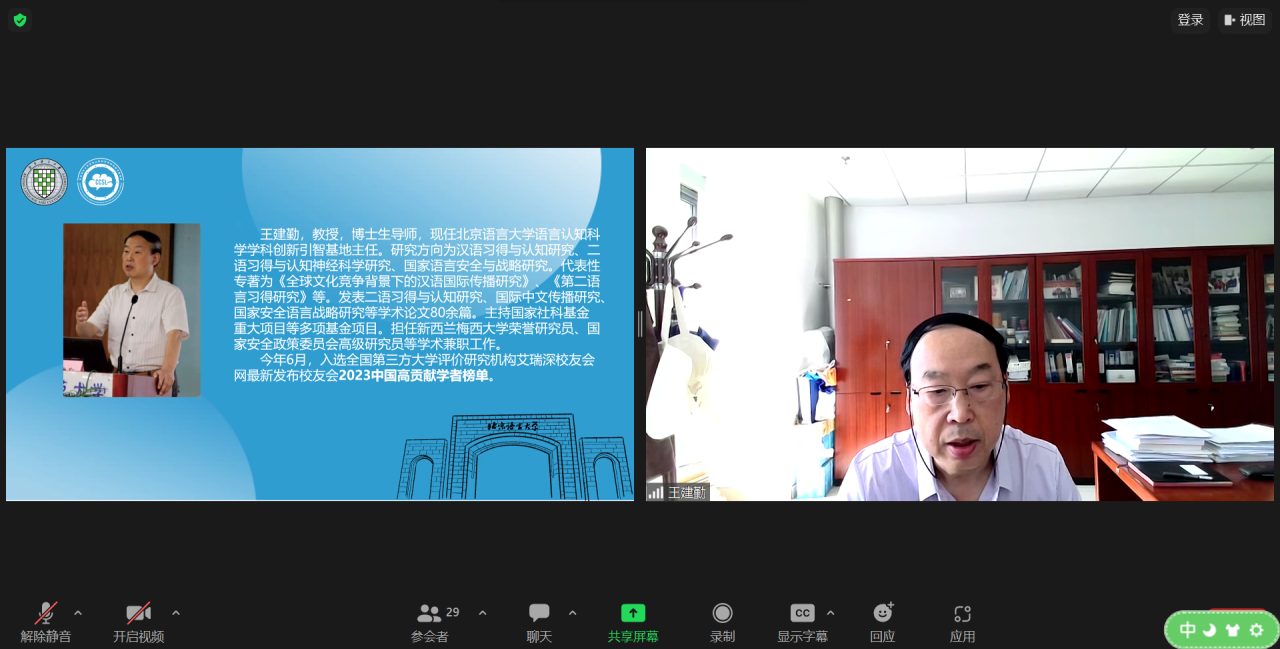
Following the opening ceremony, various activities were held, including popular science lectures on "Language Cognitive Science," sharing of experiences by outstanding graduates, academic lectures by renowned experts, and comprehensive assessments. Deputy Director Jiang Rong and Dr. Wei Yanjun, full-time researchers at the base, hosted the lecture sessions.
The "Language Cognitive Science" popular science lectures were divided into two parts. Associate Researcher Lu Lingxi, a full-time researcher at the Discipline Innovation and Intelligence Introduction Base for Language Cognitive Science, delivered a lecture titled "Language and the Brain." She discussed the relationship between language function and brain regions, the 2009 Human Brain Mapping Project, the China Human Connectome Project, and electrophysiological experimental techniques. Lu also briefly introduced the research steps involved in studying the cognitive neural processing mechanisms of Chinese second language acquisition using the latest research results, Lu et al. (2023) published in eNeuro. Dr. Wei Yanjun, a full-time researcher at the base, presented a lecture on "Research in Language Cognitive Science," starting from six classic questions in the field of language research, he provided detailed insights into "language cognition." Dr. Wei also briefly explained commonly used research techniques in language cognition, such as functional magnetic resonance imaging (fMRI), magnetoencephalography (MEG), and transcranial magnetic stimulation (TMS), and used the example of "compound morpheme decomposition" research to illustrate the main stages of experimental research. After the popular science lectures, campers actively engaged in discussions and interactions with the two teachers on topics like frequency-tagging paradigms, the application of brain-computer interfaces for individuals with language disorders, and differences between cochlear implant subjects and normal subjects.
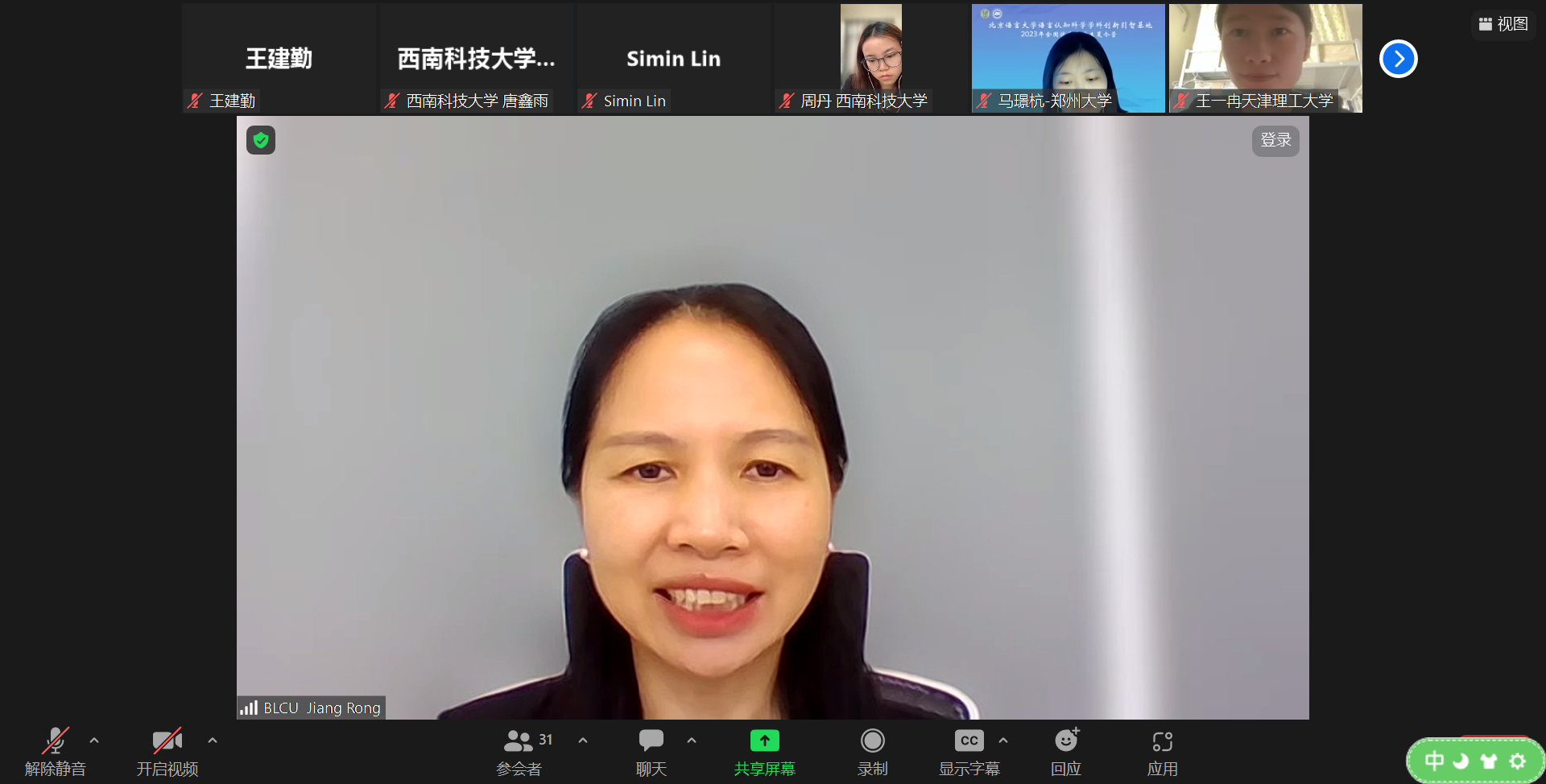
During the "Sharing of Experiences by Outstanding Graduates" session, four distinguished guests, Zhao Cheng, Li Jing, Zhang Yun, and Gao Fei, shared their experiences. Zhao Cheng provided a detailed introduction to the base's international courses and expert lectures and how they contributed to his research abilities and overall development. Li Jing emphasized the enhancement of her time management skills, analytical and problem-solving abilities, language expression, communication skills, as well as her resilience in dealing with difficulties and setbacks during her three years of study at the base. Zhang Yun shared the gains and comprehensive growth she achieved through three years of research practice in graduate school, her successful Ph.D. application experience, and her insights. Gao Fei humorously summarized his study life at Beijing Language University with the phrase "learn well, play well, and eat well," and provided advice such as "read more books, read more literature, think more," and "learn programming while young." The sharing of experiences by outstanding graduates provided campers with a direct understanding of the characteristics of graduate study life at the base.
On the afternoon of July 7, Professor Wang Jianqin, Director of the base, and Professor Marcus Taft from the University of New South Wales, Australia, delivered engaging academic lectures.
Professor Wang Jianqin's lecture was titled "Cognitive Neuroscience Perspectives on Second Language Acquisition Research." He briefly introduced the base's main research direction—language and cognitive neuroscience, explained the development of this interdisciplinary field, and discussed advanced imaging techniques and future research directions. Professor Wang hoped that campers would make contributions to the development of this emerging interdisciplinary field.
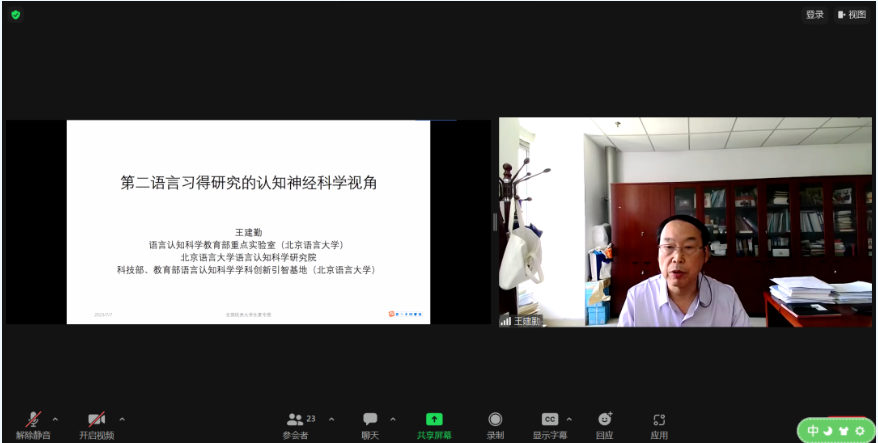
Professor Marcus Taft's lecture was titled "The Cognitive Science of Language." Taft provided an overview of the language research methods adopted by researchers guided by cognitive science. He combined his own research background and studies to illustrate these research methods. Professor Taft's lecture was logically structured and easy to understand, piquing the campers' keen interest. During the interactive Q&A session, campers actively raised questions and engaged in academic discussions.
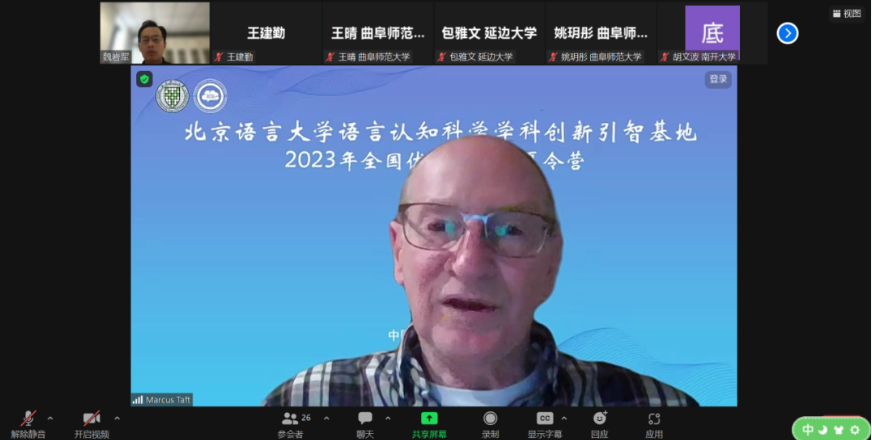
Following the lectures, campers had the opportunity to visit the base's laboratories in person. They toured the near-infrared laboratory, the electroencephalography (EEG) laboratory, the eye-tracking laboratory, and the electrophysiological lab, with explanations provided by four base graduate students: Lin Simin, Jin Yangping, Wu Dannini, and Yan Xiaoying. These students succinctly and comprehensively introduced the technical principles, equipment composition, technical advantages of the laboratory equipment, and illustrated the experimental process and suitable research types through their own experiments. Campers enthusiastically asked questions and engaged in discussions during the tours.
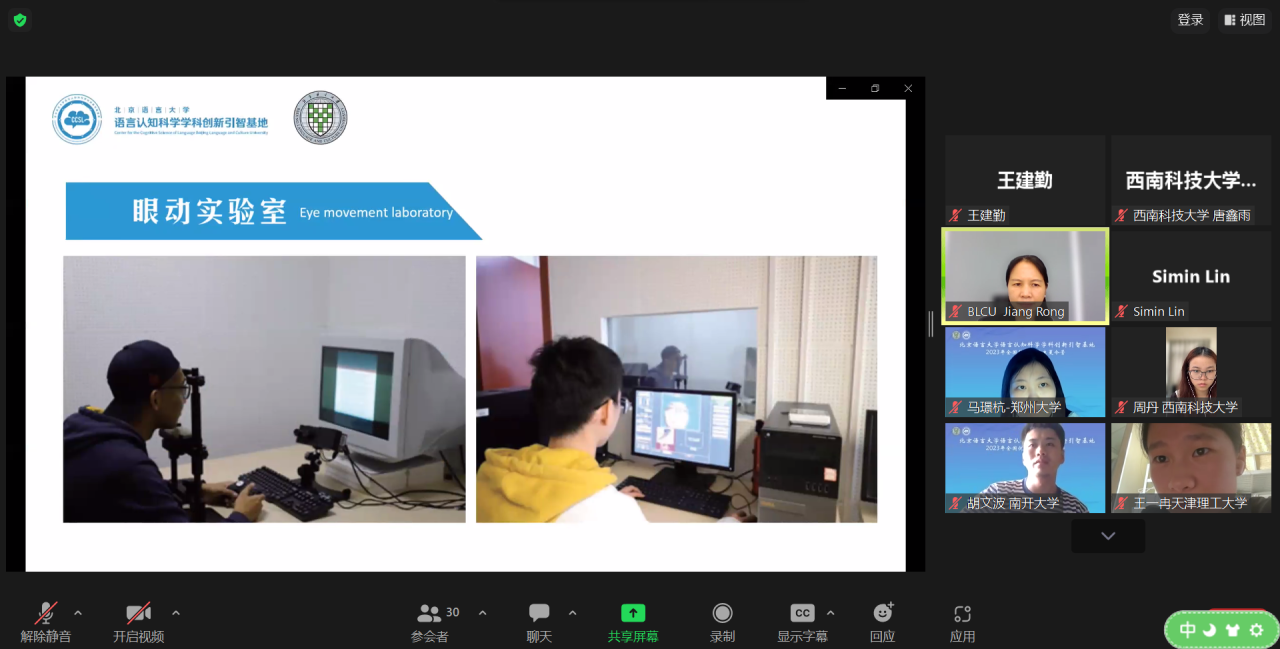
On July 8, the base organized interviews and written tests to comprehensively assess campers' professional knowledge, foreign language abilities, and learning plans. Ultimately, 19 outstanding campers stood out. With this, the 2023 National Outstanding University Student Summer Camp at the Discipline Innovation and Intelligence Introduction Base for Language Cognitive Science came to a successful conclusion.
This summer camp provided outstanding university students with a deep understanding of the Discipline Innovation and Intelligence Introduction Base for Language Cognitive Science and the major of Language Cognitive Science. It showcased the base's academic positioning, interdisciplinary construction, and the cultivation of interdisciplinary talents. Additionally, it promoted academic exchanges among outstanding students, and campers expressed that the summer camp broadened their academic horizons and was a rewarding experience.